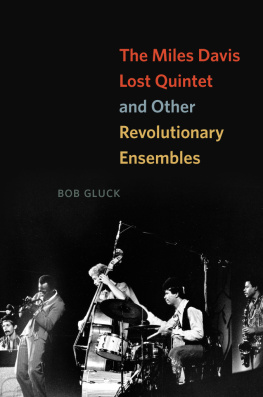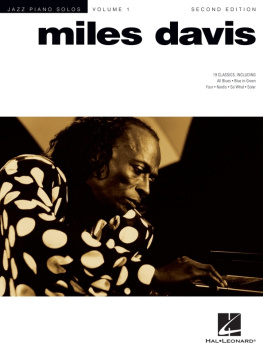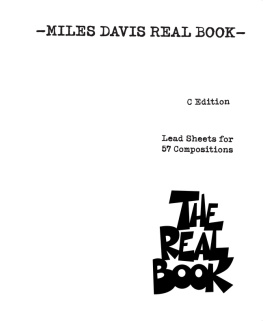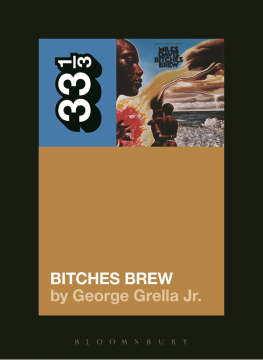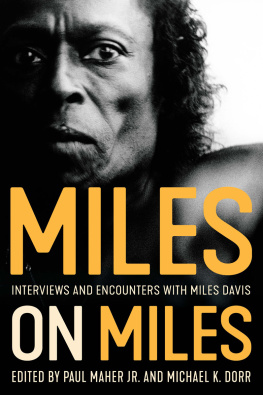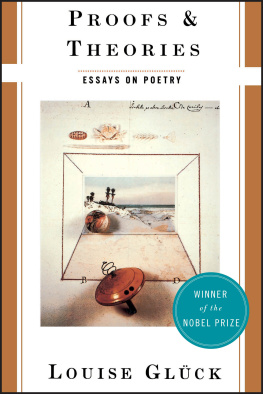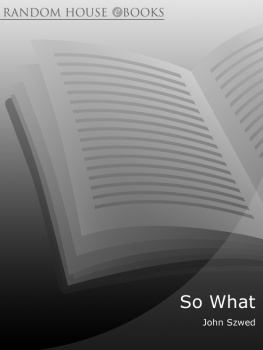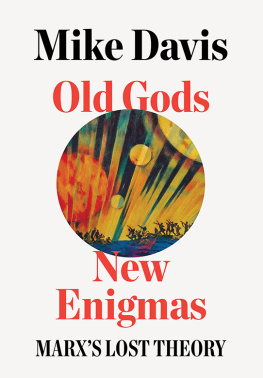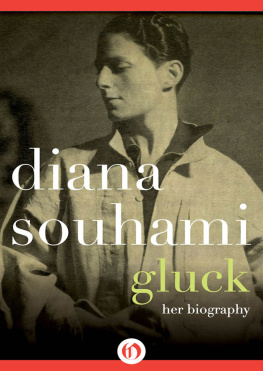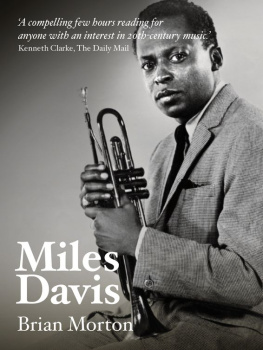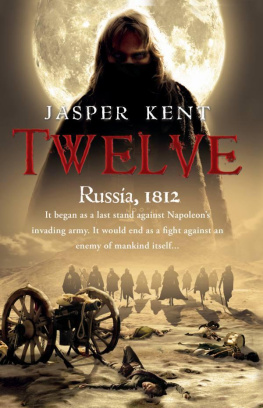Bob Gluck - The Miles Davis Lost Quintet and Other Revolutionary Ensembles
Here you can read online Bob Gluck - The Miles Davis Lost Quintet and Other Revolutionary Ensembles full text of the book (entire story) in english for free. Download pdf and epub, get meaning, cover and reviews about this ebook. year: 2016, publisher: University of Chicago Press, genre: Home and family. Description of the work, (preface) as well as reviews are available. Best literature library LitArk.com created for fans of good reading and offers a wide selection of genres:
Romance novel
Science fiction
Adventure
Detective
Science
History
Home and family
Prose
Art
Politics
Computer
Non-fiction
Religion
Business
Children
Humor
Choose a favorite category and find really read worthwhile books. Enjoy immersion in the world of imagination, feel the emotions of the characters or learn something new for yourself, make an fascinating discovery.
- Book:The Miles Davis Lost Quintet and Other Revolutionary Ensembles
- Author:
- Publisher:University of Chicago Press
- Genre:
- Year:2016
- Rating:3 / 5
- Favourites:Add to favourites
- Your mark:
- 60
- 1
- 2
- 3
- 4
- 5
The Miles Davis Lost Quintet and Other Revolutionary Ensembles: summary, description and annotation
We offer to read an annotation, description, summary or preface (depends on what the author of the book "The Miles Davis Lost Quintet and Other Revolutionary Ensembles" wrote himself). If you haven't found the necessary information about the book — write in the comments, we will try to find it.
Bob Gluck: author's other books
Who wrote The Miles Davis Lost Quintet and Other Revolutionary Ensembles? Find out the surname, the name of the author of the book and a list of all author's works by series.
The Miles Davis Lost Quintet and Other Revolutionary Ensembles — read online for free the complete book (whole text) full work
Below is the text of the book, divided by pages. System saving the place of the last page read, allows you to conveniently read the book "The Miles Davis Lost Quintet and Other Revolutionary Ensembles" online for free, without having to search again every time where you left off. Put a bookmark, and you can go to the page where you finished reading at any time.
Font size:
Interval:
Bookmark:
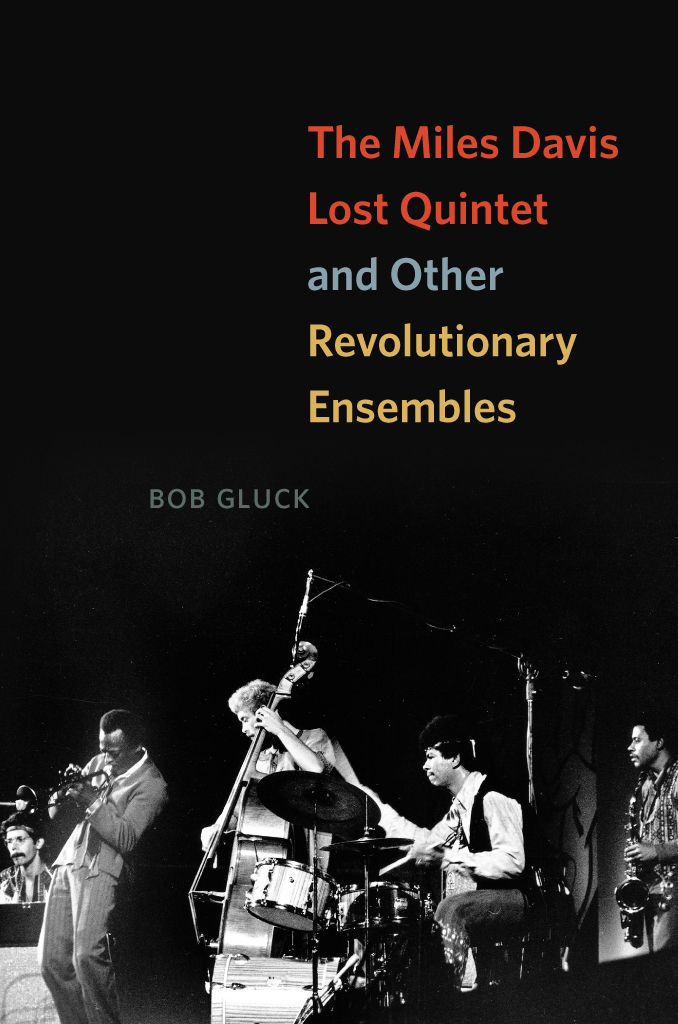
Bob Gluck
The University of Chicago Press
Chicago and London
Bob Gluck is a pianist, composer, and jazz historian, as well as associate professor of music and director of the Electronic Music Studio at the State University of New York, Albany. He is the author of Youll Know When You Get There: Herbie Hancock and the Mwandishi Band, also published by the University of Chicago Press.
The University of Chicago Press, Chicago 60637
The University of Chicago Press, Ltd., London
2016 by The University of Chicago
All rights reserved. Published 2016.
Printed in the United States of America
25 24 23 22 21 20 19 18 17 16 1 2 3 4 5
ISBN-13: 978-0-226-18076-2 (cloth)
ISBN-13: 978-0-226-30339-0 (e-book)
DOI: 10.7208/chicago/9780226303390.001.0001
Library of Congress Cataloging-in-Publication Data
Gluck, Bob, author.
The Miles Davis Lost Quintet and other revolutionary ensembles / Bob Gluck.
pages cm
Includes bibliographical references and index.
ISBN 978-0-226-18076-2 (cloth: alkaline paper) ISBN 978-0-226-30339-0 (e-book) 1. Davis, Miles. 2. Jazz19611970History and criticism. 3. Jazz19711980History and criticism. 4. Jazz musiciansUnited StatesBiography. I. Title.
ML419.D39G58 2016
785'.32195165dc23
2015019938
This paper meets the requirements of ANSI/NISO Z39.48-1992 (Permanence of Paper).
In loving memory:
Jim Richard Wilson
Don Funes
I was introduced to Miles Daviss Bitches Brew in 1970 by my familys rabbi, Chaim Stern. At the time, I was a student at Juilliards Preparatory Division. Having just begun to broaden my exposure to music beyond what I was experiencing at the conservatory, that recording was a jolt to my system. The inspiration to write this book, the companion piece to my previous work, Youll Know When You Get There: Herbie Hancock and the Mwandishi Band, dates to experiences I had four years after that first encounter with Davis, when I entered college.
The phenomenal creative cauldron that was the Crane School of Music at the State University of New York at Potsdam allowed me to make sense of Bitches Brew and introduced me to Herbie Hancocks Mwandishi recordings. I joined a circle of friends there, mostly musicians and artists who were clustered around a charismatic young professor named Donald J. Funes. Dons nonjudgmental embrace of every conceivable musical form and culture afforded me the space to explore new musical possibilities. We listened to John Coltranes A Love Supreme and the entire Wagner Ring cycle in his apartment. Dons Live/Electronic Ensemble introduced me to the kind of open improvisation that I had found so baffling about Bitches Brew, and I have been thinking about this music ever since. I have Don to thank for so much.
In addition to the profound broadening of my musical sensibilities that Don encouraged, another life-changing experience for me in Potsdam was my friendship with Jim Richard Wilson, then an art history student. Jim, two years my senior, was one of the few non-musicians in our circle. He brought a deep intellectual and artistic curiosity and acuity to the group, and in turn was able to cultivate his lifelong deep appreciation of music in its myriad forms. Jim was a much-appreciated supporter of our collective and often wild musical and multimedia endeavors.
After leaving Potsdam, Jim and I went our separate ways. Some years later, having recently moved to the Albany, New York, area to attend a graduate program in electronic arts, I discovered his name in the regional arts council newsletter, and we renewed our friendship. Jim was instrumental in encouraging my return to live musical performance after I had taken a break from it to serve as a rabbi. Our friendship deepened while we shared our love of jazz (particularly David Murray and Miles Davis), the plastic arts, politics, the outdoors, and intellectual pursuits, as well as our parallel lives within academia. (He was the founding director of an art gallery at a nearby college.) Jim was one of the best friends I have ever had, as well as a discerning reader of both my manuscripts.
Jim spent his final two and a half years heroically battling cancer until his death in July 2014. That period was one of much personal sadness: my father, Stanley Gluck, had passed away the previous October. I miss both men deeply, but their memory, along with the ever-present support of my spouse, Pamela Faith Lerman, has spurred the creative thinking that enabled my completion of this book.
I dedicate these pages to Jim Richard Wilson and to Don Funes, two people whose friendship and steady support helped make my creative endeavors possible. I dedicated my recording of music for saxophone, piano, and electronics, Tropelets (Ictus Records, 2014), to my fathers memory.
Faced as I was with competing possible narratives on which to focus The Miles Davis Lost Quintet, I owe many thanks to my editor, Elizabeth Branch Dyson, for helping guide my choice. Indeed, the Lost Quintet could be my major focus here while including two other elements from early drafts: Circle and the downtown loft scene in New York City. Both Circle and the Revolutionary Ensemble were personal discoveries made while I was at Potsdam. While I never saw Circle perform, I had the pleasure of hearing the Revolutionary Ensemble on two occasions, along with a solo performance by percussionist Jerome Cooper on a third. A conversation with Leroy Jenkins at that time (continued thirty years later) particularly sparked my interest. These were among many wonderful experiences I had while attending shows in venues like Studio Rivbea, Tin Palace, and the Public Theater. As I strove to identify a theme for this book, I came to recognize similarities between the music of Miles Daviss Lost Quintet, Circle, and the Revolutionary Ensemble. While writing, I increasingly appreciated their shared musical values and began to place all three on a single artistic continuum. Articulating the nature of that connective tissue, as well as the important differences, became an easy task.
Thank you, Elizabeth, and the entire staff at the University of Chicago Press, including Editorial Associate Nora Devlin, copy editor Sandra Hazel, and Promotions Manager Ryo Yamaguchi; Ive had the pleasure of working with Elizabeth and Ryo on my earlier book as well. I am also grateful to the many discerning and encouraging readers of this manuscript, among them Pheeroan akLaff, Dawoud Bey, Andre Cholmondeley, Guy de Bievre, Douglas Ewart, Patrick Gleeson, Michael Heffley, David Katz, James Keepnews, Pamela Faith Lerman, Ras Moshe, Nashira Priester, and Jim Richard Wilson. They have made this a far better book than it would have been otherwise. For helpful contributions to my thinking and research, I extend my appreciation to Dawoud Bey, Stanley Cowell, Brent Edwards, Herbie Hancock, Jabali Billy Hart, Michael Heller, Dave Holland, George Lewis, Neil Rolnick, and Michael Veal. Thanks also to Shira Gluck for her work on interview transcriptions and editorial matters.
Many thanks to the many musicians who gave of their time to converse with me in formal interviews about that wonderful creative period of more than four decades ago: Barry Altschul, Karl Berger, Jerome Cooper, Chick Corea, Alvin Curran, Andrew Cyrille, Dave Liebman, John Mars, Michael Moss, Alphonse Mouzon, Wallace Roney, Warren Smith, and Richard Teitelbaum.
Font size:
Interval:
Bookmark:
Similar books «The Miles Davis Lost Quintet and Other Revolutionary Ensembles»
Look at similar books to The Miles Davis Lost Quintet and Other Revolutionary Ensembles. We have selected literature similar in name and meaning in the hope of providing readers with more options to find new, interesting, not yet read works.
Discussion, reviews of the book The Miles Davis Lost Quintet and Other Revolutionary Ensembles and just readers' own opinions. Leave your comments, write what you think about the work, its meaning or the main characters. Specify what exactly you liked and what you didn't like, and why you think so.

